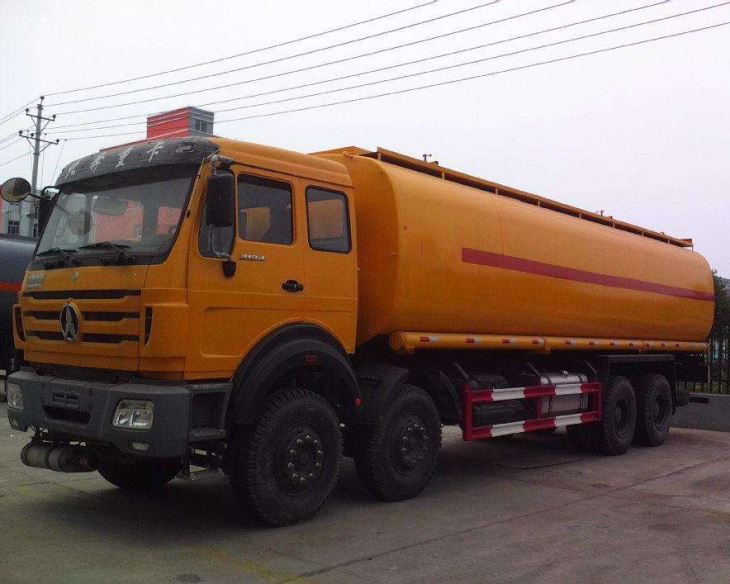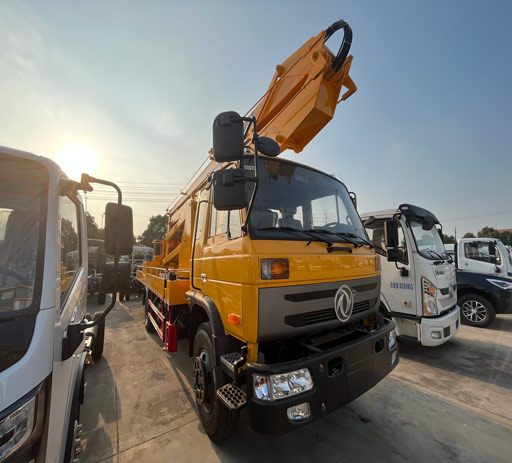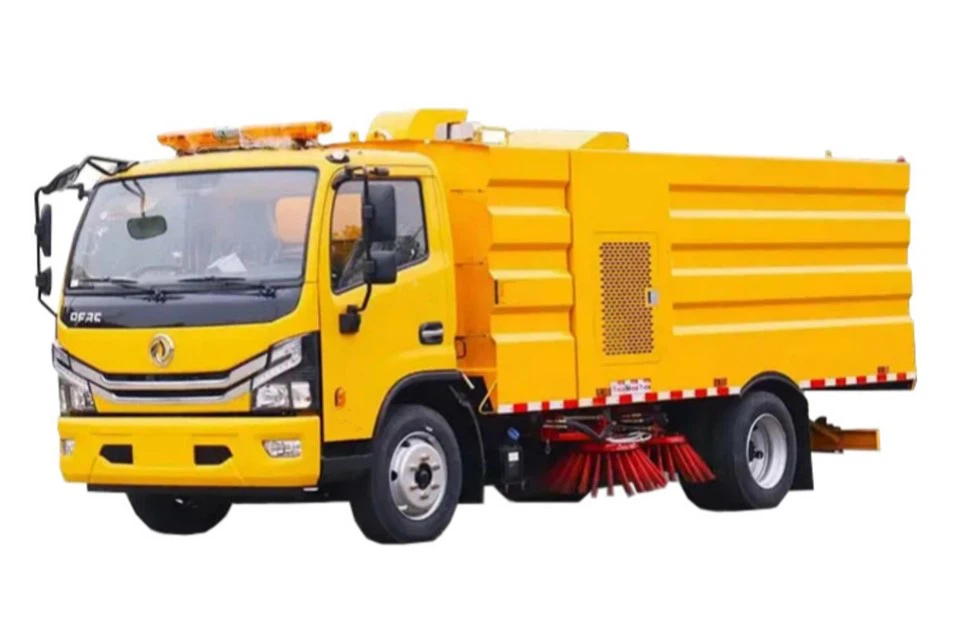Everything You Need to Know About Water Spray Trucks

Introduction
Water spray trucks, commonly known as water trucks, are specialized vehicles designed for the purpose of delivering water for various applications. Their primary utilities range from dust control on construction sites and unpaved roads to agricultural irrigation and fire prevention. With the growing need for efficient water management, understanding the functions, types, and benefits of water spray trucks becomes essential for businesses and municipalities alike. This article takes an in-depth look at water spray trucks, their applications, features, maintenance tips, and more.
What is a Water Spray Truck?
A water spray truck is a commercial vehicle equipped with a large tank that holds water, along with a spray nozzle or a system for distributing water over a designated area. These trucks are versatile in their applications and can be found in various industries including construction, agriculture, and municipal services.
Types of Water Spray Trucks
Water spray trucks come in several types based on their specific applications. Understanding these types can help you choose the right one for your needs.
1. Dust Suppression Trucks
These trucks are primarily used to control dust on construction sites and unpaved roads. They spray water to minimize airborne particulate matter, creating a safer environment.
2. Agricultural Water Trucks
Agricultural water trucks are used to irrigate crops and deliver water to fields. They often come with advanced irrigation systems to improve efficiency.
3. Firefighting Water Trucks
These trucks are specifically equipped for firefighting operations, providing quick access to water in remote areas. They often include higher pressurization systems for effective water delivery.
4. Municipal Water Trucks
Municipal water trucks are employed by local governments for street cleaning, landscape watering, and maintaining public parks.
Key Features of Water Spray Trucks
Several features make water spray trucks effective for their intended applications. Here are some important characteristics:
Tank Capacity
The capacity of a water spray truck’s tank can vary greatly, usually ranging between 1,000 to 5,000 gallons. Choosing the right size depends on the specific jobs you expect the truck to perform.
Water Distribution System

Water spray trucks may be equipped with different types of distribution systems, including:
- Hose systems which allow for targeted spraying
- Spray bars that cover wider areas
- Automated systems for precision watering
Chassis and Design
The chassis of the water spray truck often determines its durability and maneuverability. Most trucks are built on heavy-duty trucks or chassis to withstand rigorous use.
Controls and Automation

Modern water spray trucks feature advanced controls that can automate the spraying process, improving water efficiency and operational ease.
Applications of Water Spray Trucks
Water spray trucks have a wide range of applications across various industries. Here are some of the key uses:
Construction Sites
Water trucks are frequently used on construction sites for dust suppression. This helps maintain visibility and reduces respiratory hazards for workers.
Agriculture
Agricultural water trucks can be optimized with different nozzles and irrigation systems to maximize crop yield. They can reach areas that traditional irrigation methods may not adequately cover.
Firefighting
Water spray trucks are essential during firefighting operations, especially in remote areas where water sources may be scarce. They can quickly refill firefighting equipment or douse flames directly.
Park Maintenance
Municipalities utilize water spray trucks to keep parks and public spaces well-watered, enhancing the aesthetic appeal and health of the greenery.
Dust Control on Roads
Unpaved roads can kick up substantial dust, affecting air quality and vehicle visibility. Water trucks apply moisture to the surface, mitigating these concerns.
Benefits of Using Water Spray Trucks
Investing in a water spray truck offers numerous advantages, especially for businesses that rely on their capabilities. Some of these benefits include:
Improved Air Quality
Water trucks help in minimizing airborne dust and pollutants, leading to better air quality in industrial and rural areas.
Cost-Effective
While the initial purchase might be significant, owning a water spray truck can be cost-effective over time. By reducing dust and improving crop yield, they save on potential clean-up and treatment costs.
Increased Productivity
By automating various watering tasks, water spray trucks reduce the manual labor required, allowing for quicker project completions and improved resource management.
Environmental Compliance
Many regions have regulations regarding dust control and water usage. Utilizing a water spray truck can help businesses comply with such environmental standards.
Maintenance of Water Spray Trucks
Like any specialized vehicle, water spray trucks require regular maintenance to ensure they operate efficiently. Here are key maintenance tips:
Regular Inspections
Perform regular inspections on the tank, hose, and pump systems to catch any issues early. Check for leaks and inspect hoses for wear and tear.
Cleaning the Tank
It’s crucial to clean the water tank periodically to prevent algae growth and sediment buildup, which may affect water quality.
Monitor Fluid Levels
Always ensure that hydraulic fluids and other necessary liquids are at adequate levels to prevent mechanical failure.
Service the Pump System
Inspect and service the pump system routinely to ensure water pressurization remains effective and that the system does not become clogged.
Choosing the Right Water Spray Truck
Selecting the right water spray truck depends on several factors. Here’s what to consider:
Operational Needs
Assess the specific tasks you need the truck for, including capacity, spray range, and other functionalities that may cater to your operational needs.
Budget
Determine your budget for both purchase and maintenance. It’s crucial to find a balance between initial investment and long-term operational costs.
Commercial vs. Custom Models
Decide whether to purchase a commercially available truck or customize a vehicle to suit your specialized needs. Custom models might come at a premium but can yield better results for unique applications.
Cost of Water Spray Trucks
The cost of a water spray truck varies based on factors such as capacity, features, and brand. The price ranges typically look like this:
| Type of Water Truck | Price Range |
|---|---|
| Dust Suppression Truck | $30,000 – $70,000 |
| Agricultural Water Truck | $25,000 – $60,000 |
| Firefighting Water Truck | $50,000 – $150,000 |
| Municipal Water Truck | $40,000 – $100,000 |
FAQs About Water Spray Trucks
1. What is the primary purpose of a water spray truck?
The main purpose of a water spray truck is to deliver water for various applications, including dust suppression, agricultural irrigation, and firefighting.
2. How often should I maintain my water spray truck?
Regular maintenance is crucial, and inspections should be conducted monthly. Additionally, clean the tank and inspect the pump system at least every six months.
3. Can water spray trucks be customized?

Yes, many manufacturers offer customized options to suit specific operational needs, whether for dust control or agricultural applications.
4. What are the environmental regulations regarding water usage for spray trucks?
Regulations vary by region, but many places have specific guidelines on water usage for dust control and irrigation—it’s critical to consult local laws.
5. Are there training requirements for operating a water spray truck?
Yes, operators may need specific training to safely handle and operate water spray trucks, particularly for the safety aspects of their applications.
6. What should I look for when buying a second-hand water spray truck?
When purchasing a pre-owned truck, check the vehicle’s maintenance history, inspect for any signs of damage or wear, and verify the functionality of the spray system.
